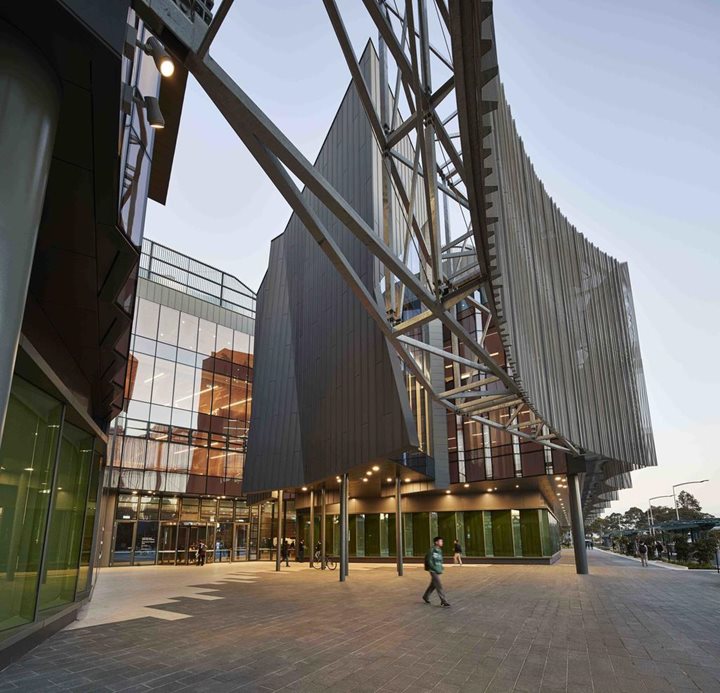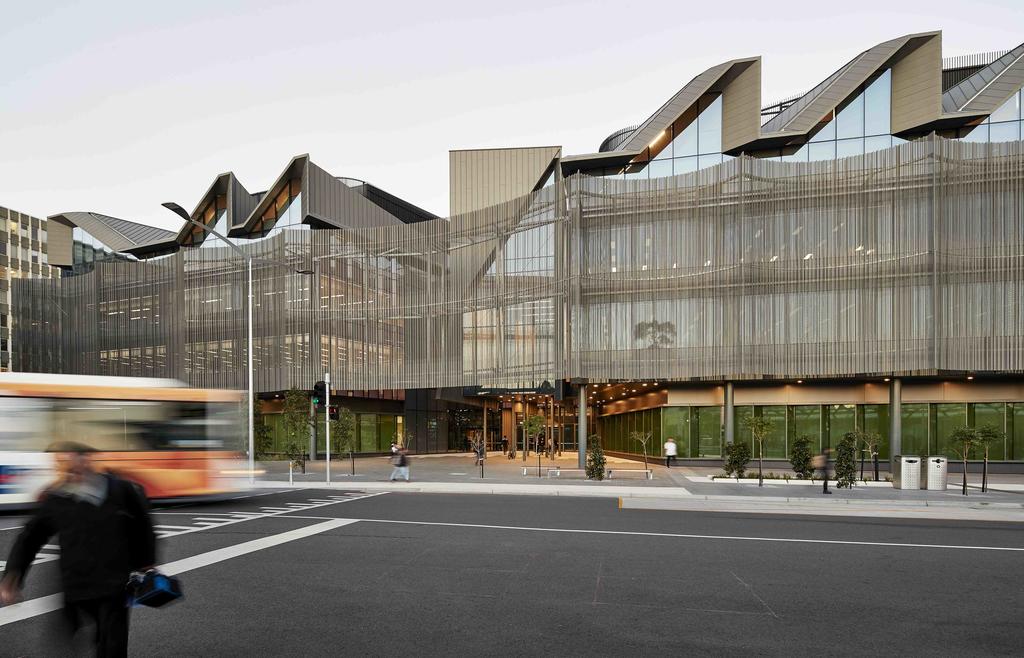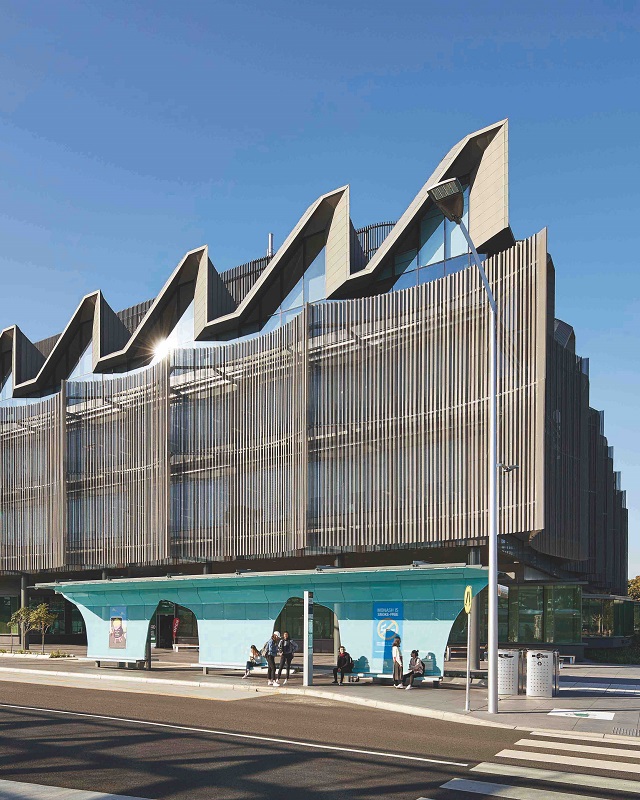
Projects /
20 May 2021
Monash University Learning and Teaching Building, Clayton (Australia)
Down the years, the John Wardle Architects (JWA) firm developed a taste for designing university campuses. Five years ago, it completed the remarkable School of Design in Melbourne — a school of architecture. With the Monash University Learning and Teaching Building, it refined and amplified its vision of architecture for education and academia.
Reading time: 5 min

The building was constructed on the Clayton campus, on the outskirts of Melbourne. Although it was created for part of the student body, it is in fact addressed at all members of the university.
As with the school of architecture, its ground floor has large openings onto the rest of the university and forms a public space covered by a large roof, perforated with a series of sheds. Evocative of the neighbouring houses, it provides shelter from the heat without blocking out light. This agora also forms a hall leading to the multiple lecture halls and various floors of the centre. The stairs serve as benches in places, multiplying opportunities to meet, interact and enabling a variety of possible uses. The space facilitates communication between students, generating discussions that enable dissemination of knowledge - the university’s raison d’être.

For the architects, only a deliberately low building, contrasting with the neighbouring tower blocks on the campus, could enable these exchanges. Underpinned by a logic focused on interaction and exchange, the architecture blurs the limits between the campus and the surrounding environment.

The perforated zinc screen replacing the facade wall serves as a shade installed on a metal structure. It gives the latter an undulating, evanescent, diaphanous form. Behind this screen, deconstructed openings, clad with glass or zinc strips lead to the hall. For the architects, the perforated zinc screens recall the bark of the eucalyptus trees bordering the site. With this building, one can possibly imagine a huge cloud where people come together, as though it were a nod to the virtual clouds of the digital world.
As with the school of architecture, its ground floor has large openings onto the rest of the university and forms a public space covered by a large roof, perforated with a series of sheds. Evocative of the neighbouring houses, it provides shelter from the heat without blocking out light. This agora also forms a hall leading to the multiple lecture halls and various floors of the centre. The stairs serve as benches in places, multiplying opportunities to meet, interact and enabling a variety of possible uses. The space facilitates communication between students, generating discussions that enable dissemination of knowledge - the university’s raison d’être.

For the architects, only a deliberately low building, contrasting with the neighbouring tower blocks on the campus, could enable these exchanges. Underpinned by a logic focused on interaction and exchange, the architecture blurs the limits between the campus and the surrounding environment.

The perforated zinc screen replacing the facade wall serves as a shade installed on a metal structure. It gives the latter an undulating, evanescent, diaphanous form. Behind this screen, deconstructed openings, clad with glass or zinc strips lead to the hall. For the architects, the perforated zinc screens recall the bark of the eucalyptus trees bordering the site. With this building, one can possibly imagine a huge cloud where people come together, as though it were a nod to the virtual clouds of the digital world.